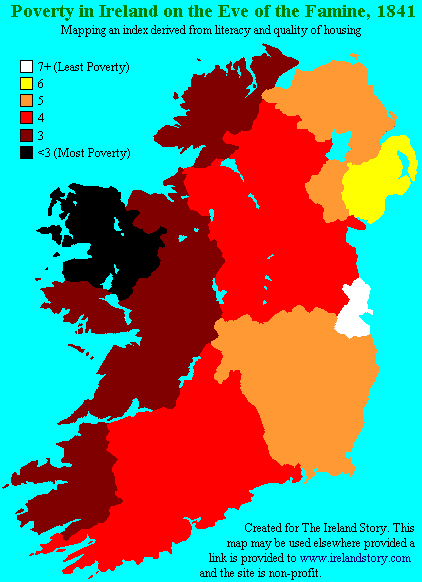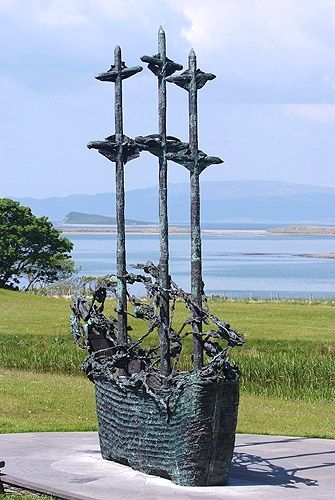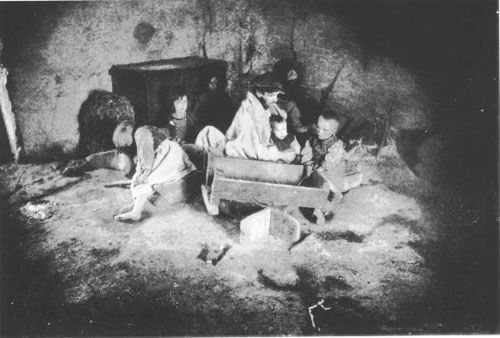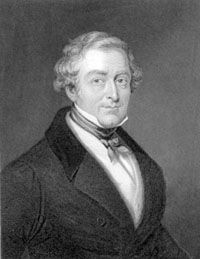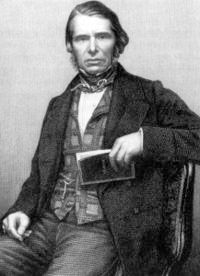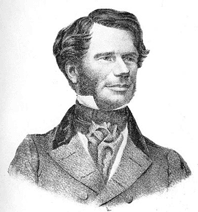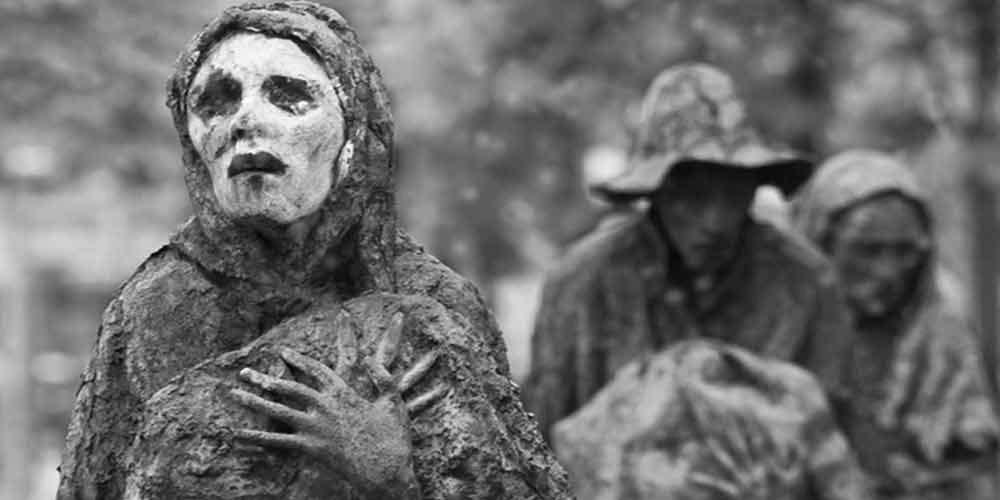
The Great Famine
The Great Famine: causes and effects of a tragedy
The Great Famine - an Gorta Mór - that affected Ireland between 1845 and 1852 wiped out about one million inhabitants and it almost led to emigration 1,750.000 people, causing social, economic and political upheaval whose consequences are still felt nowadays.
The causes
The Irish population was not new to this issue: previously, in fact, there had already been periods of food scarcity, which led in 1728 to some popular uprisings in County Cork; the crop failure of 1739-40 had caused the death of 300,000 people. This uncertainty had spread among the Irish people the false belief that supporting the Act of Union promulgated in 1801 from England could be beneficial to the nation's economy. But hopes were soon frustrated by the evidence of the facts: beyond the obvious cause of the failure of crops - the Phytophthora infestans, a parasite fungus of the potato - it was the blind and irresponsible management by the British government to scar so dramatically the fate of Ireland.
The adherence to the Act of Union implemented the British Corn Laws in Ireland too; these laws had been designed to protect farmers growing wheat from the competition with the foreign market, with a dual purpose of keeping wheat at a high price and preventing it from falling too low in years of great yield. Unfortunately for the Irish, the real beneficiaries of this protectionist attitude were the British landowners, who generally didn't even bother to visit their estates in Ireland; the management was entrusted to a local tenant, who generally sublet small plots of land to peasants in return for their work and for harvesting the potatoes needed to the subsistence of the worker and his family.
Landowners thus were sure that most of their land was used for intensive cultivation of the much more profitable wheat to be exported to England, without having to pay any kind of salary to the local labour force.
The competition for land led to a disproportionate increase in rents and to the division of the properties into lots smaller and smaller, with obvious difficulties for the farmers themselves who could not lay claim to the land they worked or to improvements made on the cultivated plot.
Deprived of any right, condemned to a difficult life not only by poverty but also by absurd laws, such as the infamous Window Tax, workers no longer able to pay the rent were brutally evicted from their miserable hovels: it is estimated that in the years between 1842 and 1849 about 58,420 farmers and their families were forcibly evicted from their houses; echoes of this dramatic situation are clearly reported in many popular ballads, such as that of Dan O'Hara.
Ireland in that period was a poor nation, the per-capita income was about half the wage of the rest of the UK; the inconsiderate management of soils and crops by the British politicians contributed to increase the level of poverty of the Irish people. The population pressure (8.2 million inhabitants) was only partly balanced by emigration and in some areas of the country, such as the South and the West, the situation was dramatic: the only thing that separated the peasants by the disaster was the possibility to feed on potatoes, a nourishing and easy-to-grow food, and to be able to warm up with an economical fuel such as turf. But such a precarious economy couldn't resist the potato blight that completely destroyed the crops of 1845-1850: in 1846 there had already been several deaths, especially in the most vulnerable segments of the population (children and old people).
The peak of hunger deaths was reached between the winter of 46 and spring of 47, but the death continued to claim victims for at least three years, not counting all those who perished on the infamous "coffin ships" that transported in prohibitive hygienic conditions multitudes of migrants already undermined by malnutrition and disease (dysenteric fevers, typhus, cholera, scurvy).
What made extremely dramatic the Irish situation was the lack of action of the British government, convinced that a substantial aid plan would have the effect of lapsing the poor into living on charity.
The British Prime Minister Robert Peel, however, attempted to alleviate the poverty of the peasants in Ireland by sending some wheat supplies purchased in America without the endorsement of his Party. Unfortunately, it was only a drop in the bucket, which soon exhausted: shipments were suspended and in 1846 Peel had to resign.
His successor - Charles Edward Trevelyan - proved to be absolutely indifferent to the fate of Ireland, because he thought that sending food supplies would only have contributed to growing lazy the indigents, preventing their will to work. Not only he did nothing to alleviate the problem, but also insisted in exporting the wheat crops produced in Ireland, a madness which produced despair and above all a strong resentment against the British Government.
Previously, the poor and the needy could go in workhouses, shelters for homeless people set up in 1840 by Peel, with the intent to partially solve the problem of poverty. In these houses the living conditions were absolutely prohibitive: the families were separated, the components divided according to their sex, the poor were forced to wear a special uniform and to work, men breaking stones or building roads and canals, women knitting. Overcrowding, not nutritious food and poor hygienic conditions unleashed every kind of disease, not to mention that the work capacity of men already so debilitated were really ineffective.
Considering the failure of the workhouses, Trevelyan progressively abandoned this project; by 1847 the only help offered to Ireland by the British Government was the distribution of meals to the poor, thus supporting Quaker and Catholic charitable organizations which had been giving assistance in this regard for a long time.
Paradoxically, this disastrous policy of aid ruined not only the lives of the poor but also those of the Irish landowners; many of them, such as "Humanity Dick" Martin (the owner of Ballinahinch castle) had sold all their means to help farmers, while others went bankrupt, due to the lack of rents to be collected, and to the increase of taxes imposed by England to collect money for the subsidies.
Ultimately, Ireland was brought to its knees not only by the damaging action of a parasitic fungus, but also by a number of different factors triggered by the dull English colonialist policy.
The effects
After the passage of the Great Famine Ireland radically changed. The population, as mentioned earlier, was drastically reduced from 8.2 million to 6 million of people in 1851. Estimates of mortality are only approximate, due to the lack of records, apart from those held in the churches and workhouses and do not take into account the deaths of emigrants. The distribution of plots of land varied greatly, because after Great Famine the families ceased to divide the land among all the children, for the eldest heir's sake, thus creating conditions of indigence for the other brothers: many "tinkers", the Irish gypsies, are actually the descendants of those who lost their rights on the parental land, a problem also mentioned in the movie ”the Field".
Another dramatic consequence was emigration: in this case, too the exact figures are not known, but it is thought that about 1.7 million people sought a better life in other countries, like the United States, Canada, or Australia. From a certain point of view, migration also brought benefits for the survivors who remained at home, who were given a few more chances.
The third and most striking effect of the Famine was the birth of many Irish political organizations, whose purpose was to get rid of the yoke of England using weapons and to establish an independent republic. The group "Young Ireland Party" under the leadership of William O'Brien dissociated from the pacifist attitude of Daniel O'Connell, who was trying to correct with his policy the dramatic social situation of the nation. After his death in 1847, the "Young Irelanders" tried to stir up trouble in 1848, but failed miserably. However, the seeds of future armed conflict against England were thrown into the fertile ground of resentment that followed the Famine and new military organizations, like the "Republican Brotherhood", multiplied rapidly, starting the dramatic "Irish Question" that has affected also the recent history of this nation.



